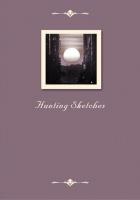"If I would have given a thousand pounds for a tear I could not shed one; no, nor sometimes scarce desire to shed one." And yet he was all the while bewailing this hardness of heart, in which he thought himself singular. "This much sunk me. I thought my condition was alone; but how to get out of, or get rid of, these things I could not." Again the very ground of his faith was shaken. "Was the Bible true, or was it not rather a fable and cunning story?" All thought "their own religion true. Might not the Turks have as good Scriptures to prove their Mahomet Saviour as Christians had for Christ? What if all we believed in should be but 'a think-so' too?" So powerful and so real were his illusions that he had hard work to keep himself from praying to things about him, to "a bush, a bull, a besom, or the like," or even to Satan himself. He heard voices behind him crying out that Satan desired to have him, and that "so loud and plain that he would turn his head to see who was calling him;" when on his knees in prayer he fancied he felt the foul fiend pull his clothes from behind, bidding him "break off, make haste; you have prayed enough."This "horror of great darkness" was not always upon him. Bunyan had his intervals of "sunshine-weather" when Giant Despair's fits came on him, and the giant "lost the use of his hand." Texts of Scripture would give him a "sweet glance," and flood his soul with comfort. But these intervals of happiness were but short-lived.
They were but "hints, touches, and short visits," sweet when present, but "like Peter's sheet, suddenly caught up again into heaven." But, though transient, they helped the burdened Pilgrim onward. So vivid was the impression sometimes made, that years after he could specify the place where these beams of sunlight fell on him - "sitting in a neighbour's house," - "travelling into the country," - as he was "going home from sermon." And the joy was real while it lasted. The words of the preacher's text, "Behold, thou art fair, my love," kindling his spirit, he felt his "heart filled with comfort and hope." "Now I could believe that my sins would be forgiven." He was almost beside himself with ecstasy. "Iwas now so taken with the love and mercy of God that I thought Icould have spoken of it even to the very crows that sat upon the ploughed lands before me, had they been capable to have understood me." "Surely," he cried with gladness, "I will not forget this forty years hence." "But, alas! within less than forty days Ibegan to question all again." It was the Valley of the Shadow of Death which Bunyan, like his own Pilgrim, was travelling through.
But, as in his allegory, "by and by the day broke," and "the Lord did more fully and graciously discover Himself unto him." "One day," he writes, "as I was musing on the wickedness and blasphemy of my heart, that scripture came into my mind, 'He hath made peace by the Blood of His Cross.' By which I was made to see, both again and again and again that day, that God and my soul were friends by this blood: Yea, I saw the justice of God and my sinful soul could embrace and kiss each other. This was a good day to me. I hope Ishall not forget it." At another time the "glory and joy" of a passage in the Hebrews (ii. 14-15) were "so weighty" that "I was once or twice ready to swoon as I sat, not with grief and trouble, but with solid joy and peace." "But, oh! now how was my soul led on from truth to truth by God; now had I evidence of my salvation from heaven, with many golden seals thereon all banging in my sight, and I would long that the last day were come, or that I were fourscore years old, that I might die quickly that my soul might be at rest."At this time he fell in with an old tattered copy of Luther's "Commentary on the Galatians," "so old that it was ready to fall piece from piece if I did but turn it over." As he read, to his amazement and thankfulness, he found his own spiritual experience described. "It was as if his book had been written out of my heart." It greatly comforted him to find that his condition was not, as he had thought, solitary, but that others had known the same inward struggles. "Of all the books that ever he had seen,"he deemed it "most fit for a wounded conscience." This book was also the means of awakening an intense love for the Saviour. "Now I found, as I thought, that I loved Christ dearly. Oh, methought my soul cleaved unto Him, my affections cleaved unto Him; I felt love to Him as hot as fire."And very quickly, as he tells us, his "love was tried to some purpose." He became the victim of an extraordinary temptation - "a freak of fancy," Mr. Froude terms it - "fancy resenting the minuteness with which he watched his own emotions." He had "found Christ" and felt Him "most precious to his soul." He was now tempted to give Him up, "to sell and part with this most blessed Christ, to exchange Him for the things of this life; for anything."Nor was this a mere passing, intermittent delusion. "It lay upon me for the space of a year, and did follow me so continually that Iwas not rid of it one day in a month, no, not sometimes one hour in many days together, except when I was asleep." Wherever he was, whatever he was doing day and night, in bed, at table, at work, a voice kept sounding in his ears, bidding him "sell Christ" for this or that. He could neither "eat his food, stoop for a pin, chop a stick, or cast his eyes on anything" but the hateful words were heard, "not once only, but a hundred times over, as fast as a man could speak, 'sell Him, sell Him, sell Him,' and, like his own Christian in the dark valley, he could not determine whether they were suggestions of the Wicked One, or came from his own heart.














